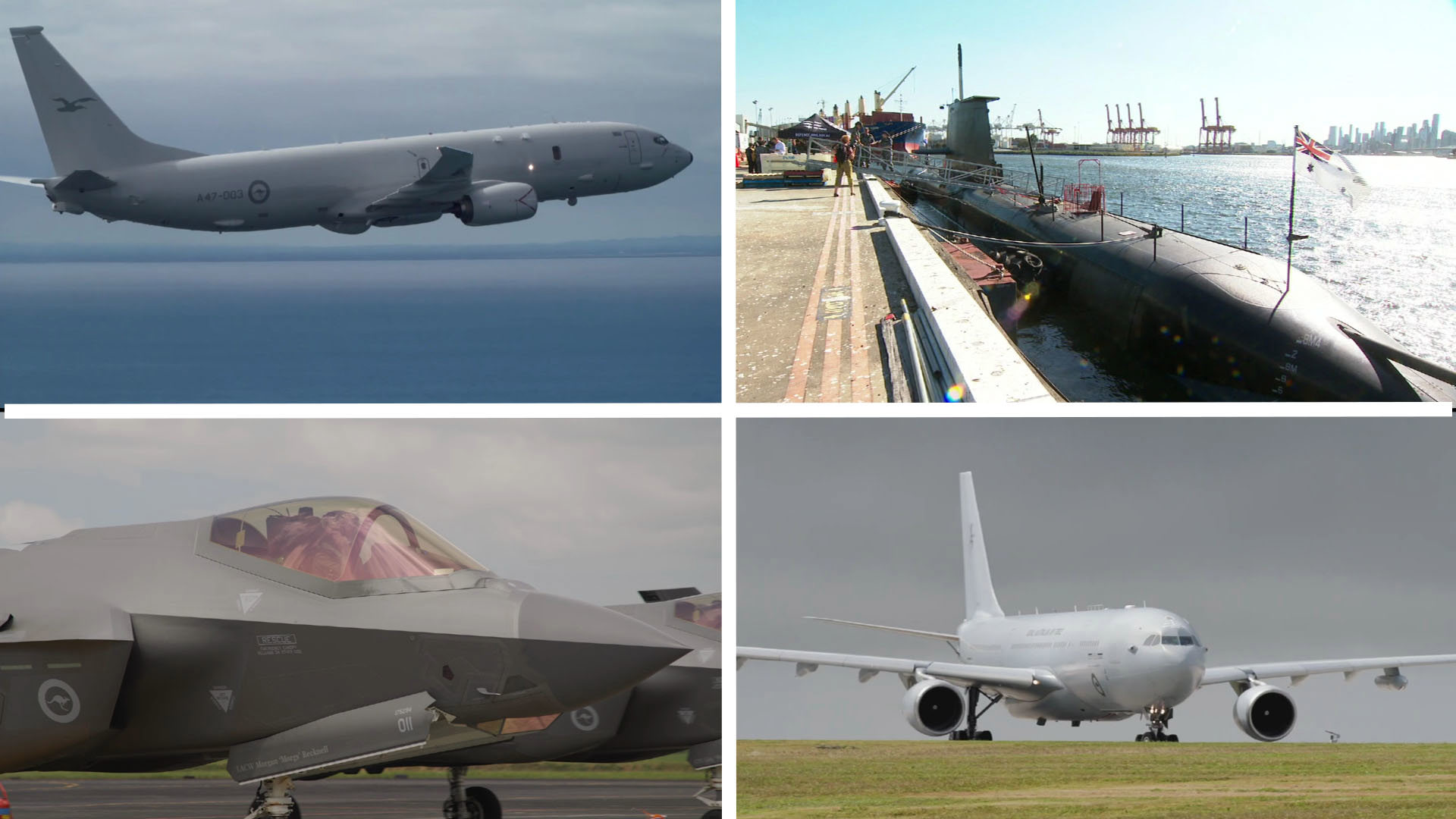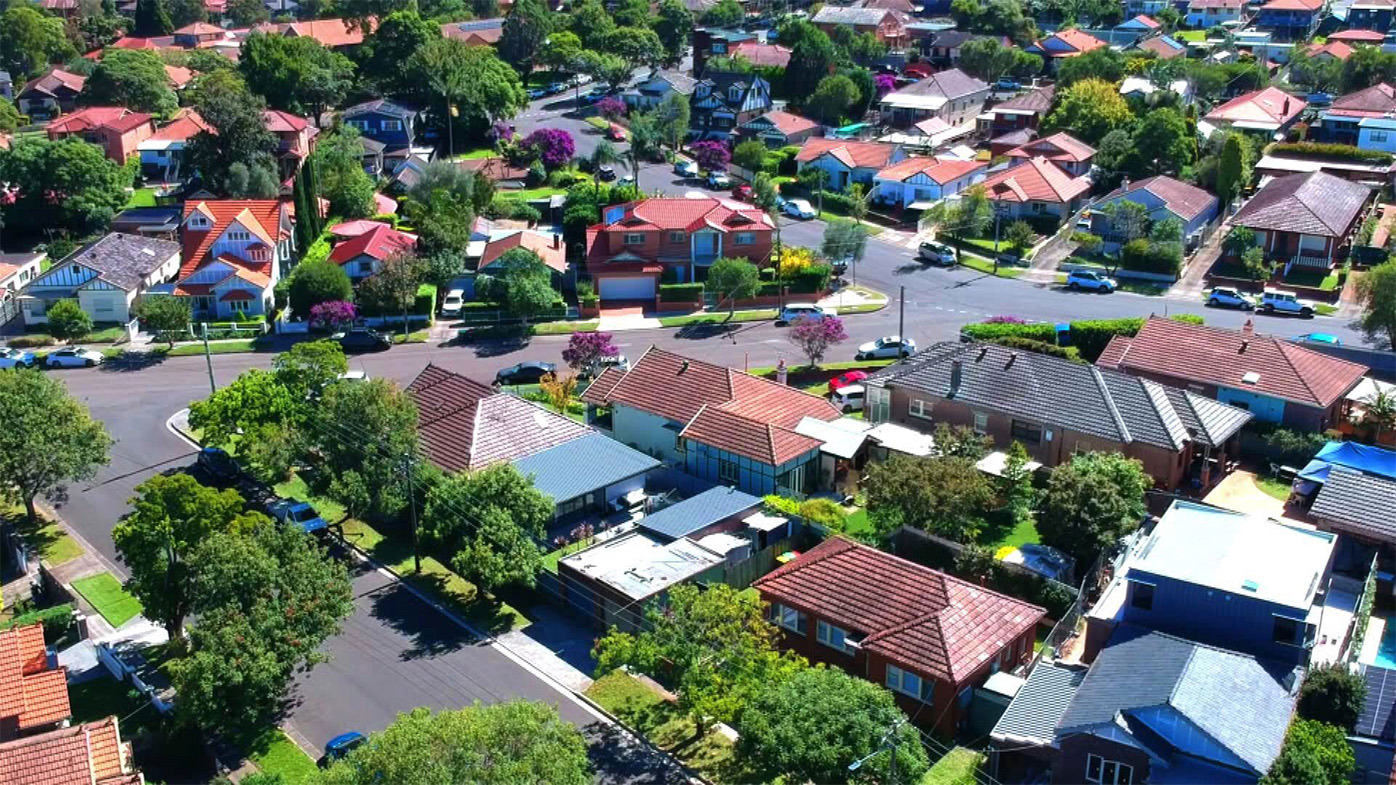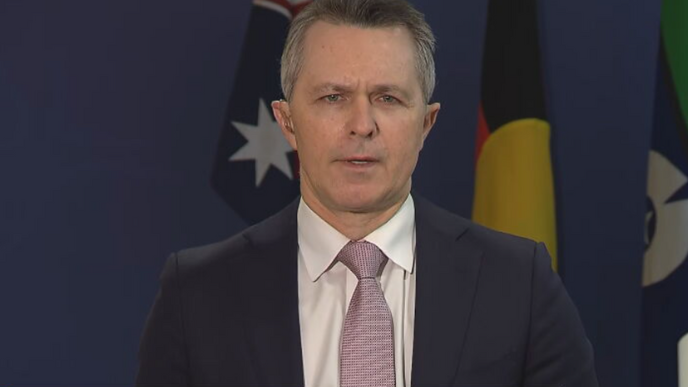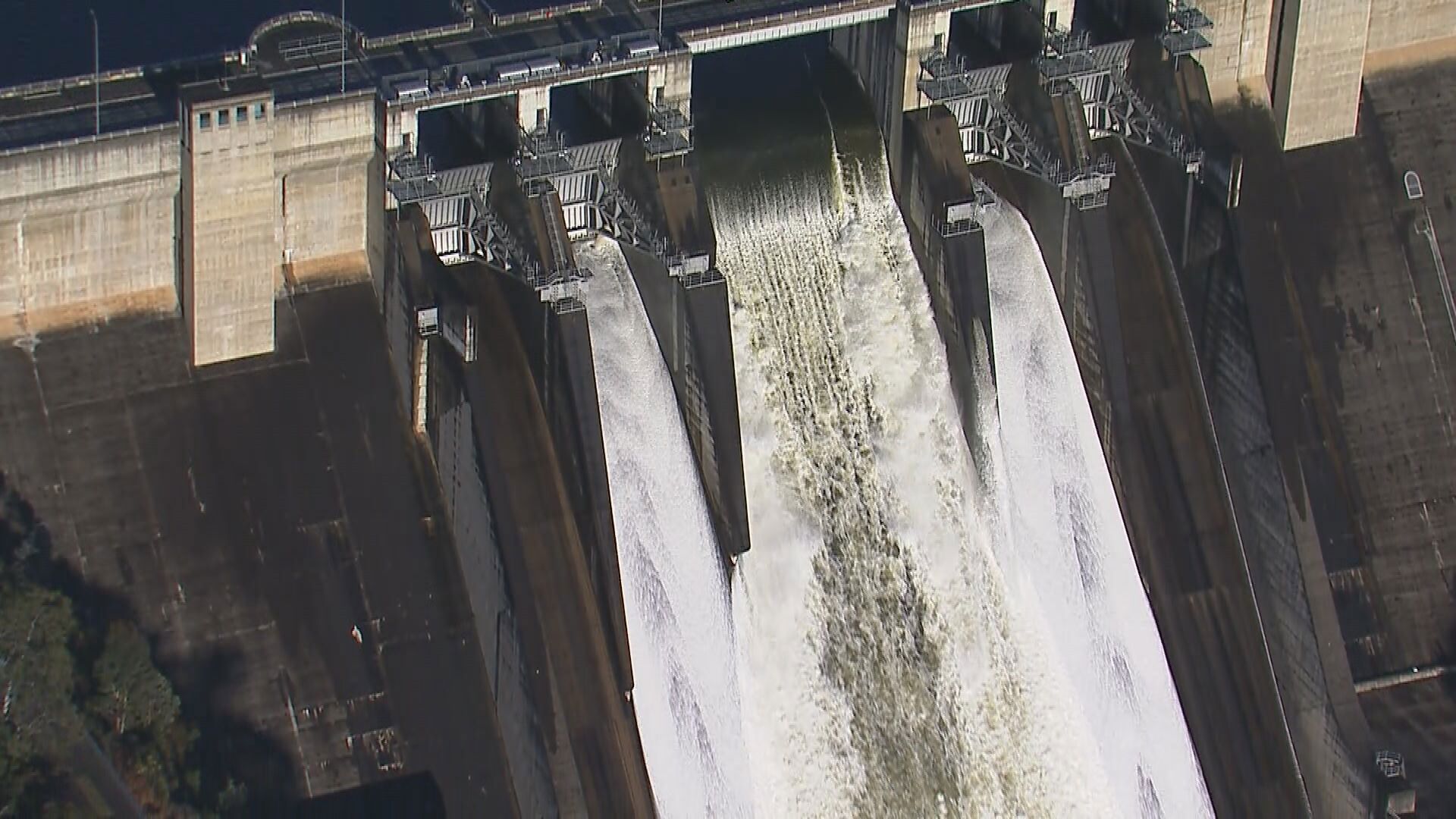
Experts who say the defence force must quickly adapt to the changing dynamics of conflict.
Most of the Australian military's most expensive planes, ships and submarines are vulnerable to the simplest of drone attacks, according to experts who say the Defence Force must quickly adapt to the changing dynamics of conflict.
Australia's multi-billion-dollar fleet of F-35s is protected by little more than sun shades and the RAAF's bigger aircraft, including C-17 Globemasters and KC-30 refuellers, are out in the open on the tarmac at Amberley air base in Queensland.
Potential adversaries don't have to go any further than Google Maps to see the Australian Defence Force's multiple vulnerabilities.
READ MORE: Melbourne family face being deported to South Korea over 'misunderstanding'

"Unfortunately, Google Maps shows almost everything," says Marc Ablong, senior fellow at the Australian Strategic Policy Institute.
"You can see the base infrastructure, people on the base, where the guard posts are. You can determine access points, weak points in fence lines. Many of those things are now readily apparent just by studying the mapping capabilities that exist through things like Google Maps."
Ablong said the ADF needed to significantly upgrade its passive protection of its bases and military kit, with hardened structures, concrete revetments and reinforced bunkers or dugouts.
He said the ADF also needed to fasten delivery of an anti-drone capability to provide active protection of assets.
Defence strategist David Kilcullen said the use of drones in the Middle East and European conflicts showed the devastating effect on modern hybrid warfare.
"It is incredibly easy to track the assets of a nation that thinks it's at peace," Kilcullen says.
"A determined state adversary is more than capable of identifying and then targeting these kinds of critical infrastructure using what some people call unconventional strategic strike, the use of special forces drones, infiltrating supply chains and so on."
Ukraine used drones smuggled into Russia on trucks to destroy billions of dollars worth of aircraft on four separate airfields, including as much as a third of Russia's strategic bomber fleet.
Operation Spiderweb's extraordinary success last month prompted Moscow to order shelters for its remaining bombers.
READ MORE: Driver appeals sentence over deadly wedding bus crash

Similarly, Israel used drones to destroy some of Iran's ageing fleet of F-14 jet fighters.
"Ukraine and Israel have demonstrated that a drone that costs less than $1000 can wreak billions of dollars worth of damage across an airfield," Ablong said.
Taiwan, which is under constant Chinese challenge, keeps its F-16s under concrete bunkers. Norway does the same with its F-35s.
China has constructed an underground base for its submarines on the island of Hainan.
By comparison, Australia keeps a squadron of F-35s at Tindal air base in the Northern Territory under corrugated tin roofs and the nation's entire submarine hunter P-8 Poseidon collection is lined up on the tarmac at Edinburgh RAAF base in Adelaide.
"It would be like owning a Ferrari or a Lamborghini and then leaving it on the street outside of your house with the key still in the ignition," Ablong said.
He said Australia could no longer assume its remoteness made it safer.
READ MORE: Retirement crisis coming for millions of Aussies

"Distance is not a meaningful discriminator anymore. Some of the drone attacks that the Ukrainians undertook travelled more than 4000 miles, which is the distance between Sydney and Perth," he said.
The Defence Force said the protection of critical assets was a "priority area for work and investment" and that it was continually revising force protection and resilience measures for its personnel, bases, critical infrastructure and capability assets.
"Defence is observing conflicts in Europe and the Middle East, including the evolution of asymmetric capabilities, and applying lessons to Australia's geographic and strategic circumstances," the department said in a statement.
Defence said it was "actively investing in Counter-small Uncrewed Aerial Systems (CsUAS)", which would detect, identify and potentially neutralise hostile drones.
A tender process for the so-called LAND 156 project is underway, Defence said.
American tech company Anduril is also running an anti-drone trial at RAAF Base Darwin.
Under the current timeline, Defence's anti-drone program is not expected to be fully operational until 2032.
DOWNLOAD THE 9NEWS APP: Stay across all the latest in breaking news, sport, politics and the weather via our news app and get notifications sent straight to your smartphone. Available on the Apple App Store and Google Play.
 How a meme could land you in hot water at the US border
How a meme could land you in hot water at the US border
 Experts say July cash rate cut 'in the bag'
Experts say July cash rate cut 'in the bag'
 Stabbing was alleged 'contract killing' and possible case of mistaken identity: Police
Stabbing was alleged 'contract killing' and possible case of mistaken identity: Police
 'Won't be the last': Call for national response to alleged childcare sexual assaults
'Won't be the last': Call for national response to alleged childcare sexual assaults
 'Haven't been doing enough': Government to fast-track childcare changes
'Haven't been doing enough': Government to fast-track childcare changes
 Man shot dead by police in siege lasting 'several hours'
Man shot dead by police in siege lasting 'several hours'
 Family business 'owed thousands' by power couple's fast food franchise
Family business 'owed thousands' by power couple's fast food franchise
 Putin and Trump discuss Iran and Ukraine in phone call, Kremlin says
Putin and Trump discuss Iran and Ukraine in phone call, Kremlin says
 Elephant kills two female tourists from the UK and New Zealand
Elephant kills two female tourists from the UK and New Zealand
 Michael Madsen, 'Reservoir Dogs' and 'Kill Bill' star, dies at 67
Michael Madsen, 'Reservoir Dogs' and 'Kill Bill' star, dies at 67
 Astronomers spot an interstellar object zipping through our solar system
Astronomers spot an interstellar object zipping through our solar system
 ACCC's warning about 'ghost stores' luring customers online
ACCC's warning about 'ghost stores' luring customers online
 'National emergency': Another fire ant nest found in NSW
'National emergency': Another fire ant nest found in NSW
 Major Sydney dam starts to spill after days of heavy rain on NSW coast
Major Sydney dam starts to spill after days of heavy rain on NSW coast
 Man admits to brutal slayings of four US uni students
Man admits to brutal slayings of four US uni students
 Melbourne family face being deported to South Korea over 'misunderstanding'
Melbourne family face being deported to South Korea over 'misunderstanding'






